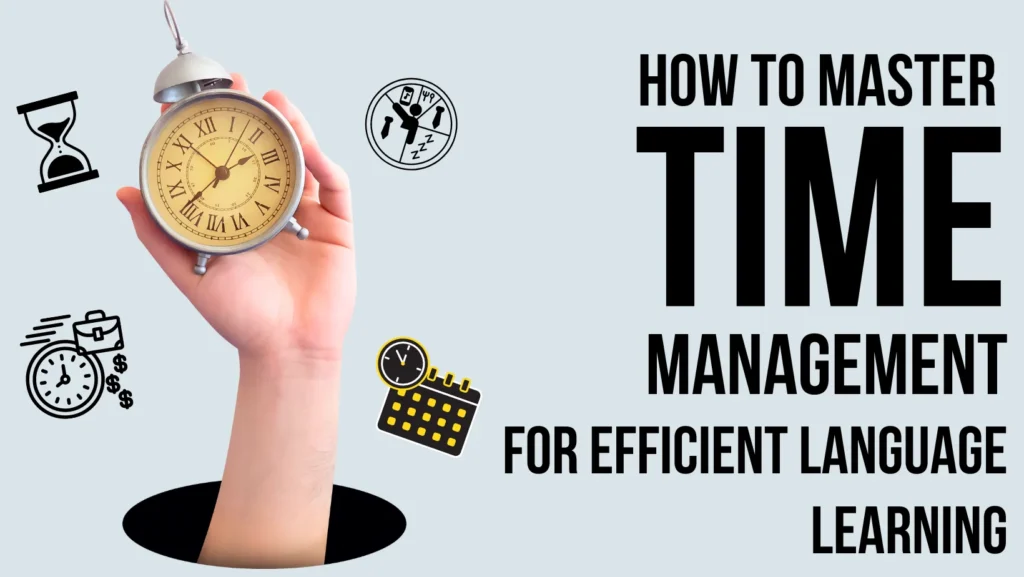Learning a new language can be an exciting yet challenging journey, especially when it comes to mastering English. As with any skill, consistent practice is key, but finding the time to dedicate to language learning can be a hurdle for many. The solution? Effective time management.

In this blog post, we’ll explore strategies to help you make the most of your time and accelerate your progress in English language learning.
Set clear goals
Before diving into language learning, it’s crucial to establish clear, realistic goals. Define what you want to achieve and break down your objectives into smaller, manageable tasks. Whether it’s improving your conversational skills, expanding your vocabulary, or mastering grammar rules, having specific goals will guide your study sessions and keep you motivated.
Prioritize tasks
Identify the most important language learning tasks and prioritize them based on your goals. Focus on high-priority activities such as practicing speaking, listening comprehension, and vocabulary building. Allocate more time to areas where you need improvement, ensuring a balanced approach to language acquisition.
Create a schedule
Developing a consistent study routine is essential for effective time management. Create a weekly or monthly schedule that includes dedicated time slots for language learning. Whether it’s 30 minutes a day or an hour three times a week, having a set schedule will help you establish a habit and make steady progress over time.
Utilize productive time slots
Identify your most productive time slots during the day and schedule your language learning sessions accordingly. Some people find they are more focused in the morning, while others may be night owls. Choose a time when you can dedicate your full attention to learning English without distractions.
Embrace technology
Consider using productivity tools, calendars, or task management apps to organize your study sessions and set reminders for language learning activities. These tools can help you stay on track. By seamlessly integrating time management technology into your routine, you can optimize your study time while maintaining a focused and uninterrupted language learning experience.
Break down tasks into micro-sessions
If finding a large chunk of time for language learning is challenging, break down your study sessions into smaller, more manageable intervals. Short, focused sessions can be just as effective as longer ones, especially when consistency is maintained. Use 10-15 minute breaks throughout the day to review vocabulary or practice pronunciation.
Combine learning with daily activities
Integrate language learning into your daily routine by combining it with other activities. Listen to English podcasts during your commute, label household items with their English names, or switch your social media and phone settings to English. This way, you’re immersing yourself in the language without adding extra time to your schedule.
Evaluate and adjust
Regularly assess your progress and adjust your time management strategies accordingly. If a particular method or schedule isn’t working for you, be flexible and willing to try new approaches. Learning a language is a dynamic process, and adapting your approach as needed will contribute to long-term success.
Mastering time management for efficient language learning is a skill that will not only benefit your English proficiency but also enhance your overall productivity. By setting clear goals, prioritizing tasks, creating a schedule, and leveraging technology, you can optimize your language learning experience. Remember, consistency is key, so find a routine that works for you and enjoy the journey to becoming a proficient English speaker.






